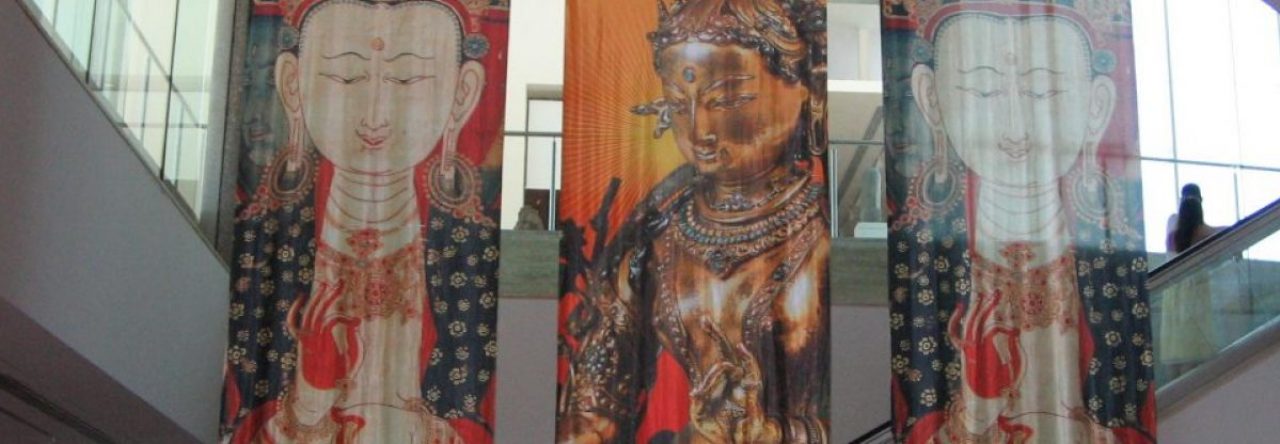“If one lets oneself sense the whole feel of now, a sense of direction emerges, if it is sought…. It is the whole of one’s living which shapes this direction.” (Philosopher Eugene T. Gendlin, Thinking Beyond Patterns: Body, Language and Situations.)
There were so many explicit concepts in the previous post which would reasonably leave you with questions. I feel an internal pressure to return to any number of them. And, of course I will… in due course. However, so as to let felt thinking guide me, I want instead to pick up an issue which lurks between those lines. This is the issue of ‘inner guidance.’
On what authority does one say something is true which is not obvious to the senses or to established thought? On what authority do you decide an external ‘authority’ is trustworthy regarding the tasks of inner transformation? And, if you’ve established to your satisfaction that they are trustworthy, how can you verify what they say for ourselves?
To explore this in what follows, I think it necessary to contrast where we are going with where we are, or where we’ve been. In the ancient Buddhist texts, the Buddha deemed it necessary to contrast the ‘noble trained person’ with the ‘untrained person.’ I’ll generally speak of the ‘mindful person’ in contrast to the ‘unmindful person.’
The unmindful person largely avoids ‘the big questions,’ and so misses opportunities to further their inner development. They don’t become the author of their own path, even when they are accomplished in philosophical talk.
The point here is that one who wishes to have a reliable foundation for inner work must have a mindful relationship to evidence and authority. Being inattentive to our immediate, actual lives doesn’t work for that. Furthermore, even when mindful people engage the inquiry into ‘mind,’ they can bypass their emotional development. As I’ll explore later, the mere fact that a spiritual teacher has ‘woken up’ to the goal (however you name it) doesn’t mean that they’ve ‘grown up.’ That is, realisation of “true nature” doesn’t mean that they’ve dealt with their wounds sufficiently to guide others. A large number of spiritual teachers have harmed themselves and others for lack of understanding of this issue. But, let’s tackle this later.
So, I’m asking: How can we be confident when we think we know something? Some say that we never can, but is this the case?
We can say what doesn’t work to bring true confidence. When I was a young man, I shared with a friend that I was learning to be mindful. She asked me to tell her more; and upon hearing what was involved, she exclaimed “Oh, no! I wouldn’t want to know what I was thinking!” I was stunned. She was affirming a way of living which would ignore her mentality. (Here I want to set your mind at rest. There is a lot more to us than mere thinking. Mindfulness, in fact, reveals the breadth and depth of that ‘more.’ Possibly my friend intuited the vastness of the more, and baulked.)
This ignoring strategy – a very weak happiness strategy – is more common than we think. Philosophy got a very bad name in the 20th century: even a pop song said that it was just ‘talk on the cereal box.’ When you set aside academic pretence, though, philosophy can be an on-going discipline. We can clarify our thinking to enhance how we live on planet Earth. It matters to do this. That’s why the Buddha placed a particular emphasis on getting your view ‘right.’
Wonky thinking brings confusion in its wake. Unexamined thoughts influence action as much as, if not more than, the thoughts that are in your face, so to speak. Yet, in the matter of straightening out your thinking, the question of ‘authority’ becomes problematic. Belief doesn’t cut it. What then can guide our thinking such that our thinking serves us, and doesn’t control us? So that we can not be controlled, too, by others’ thinking. [?]
“Throughout the world there is domination and tyranny – the tyranny of governments, the tyranny of churches in the name of God, in the name of love and peace. We have every form of authority thrust upon us, and most of us accept it because it is satisfying.” – Krishnamurti, Talk in Paris, May 20, 1965.
Some people say that, in matters of spirituality, you need to accept some truths (passed on by others) provisionally, until you can verify them experientially. I’m examining this traditional assertion, fleshing it out. It has become merely a cultural dictate for many, a habit passed on over thousands of years. I haven’t got space here to say more, though I will when we look at the inescapable fact of culture in our flesh.
We are better equipped for the task of independent learning than we tend to think. The scientific evidence is in: babies come into the world already gifted learners. They are inquiring minds. A newborn doesn’t suppose or believe anything, to begin the learning which carries their life forward.
What might this mean for us? Even if that capacity has been dimmed by the harm created by our industry-serving education, we still have it. There are ways to uncover that flexibility. Unless we become beginners again, we will remain encrusted by culture – rather than empowered by it.
If we already have an organism which is always in the process of carrying forward its development – an organism which generates itself freshly out of, in, and on from what it has just been – we only need to reignite the flame of attention that we were born with. There is a natural foundation present within us for the ‘getting’ of wisdom.
